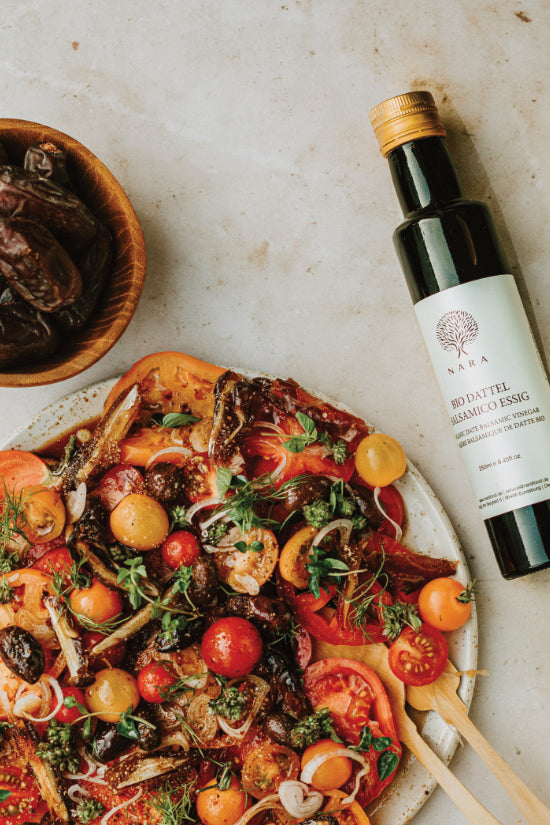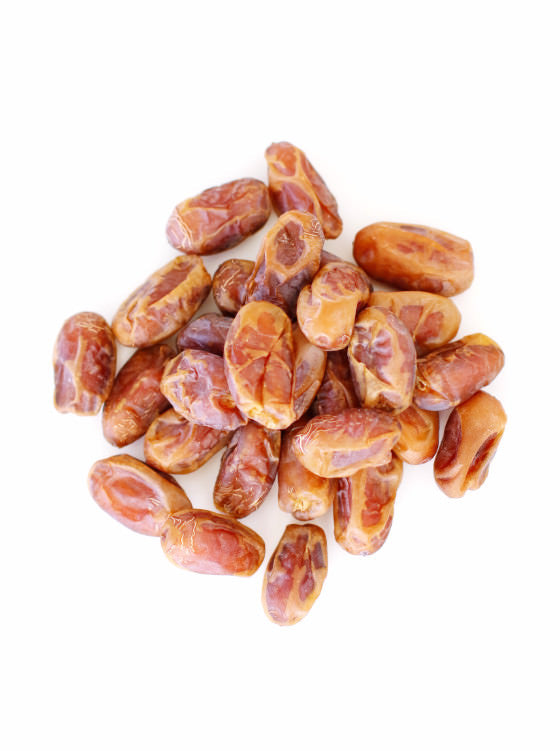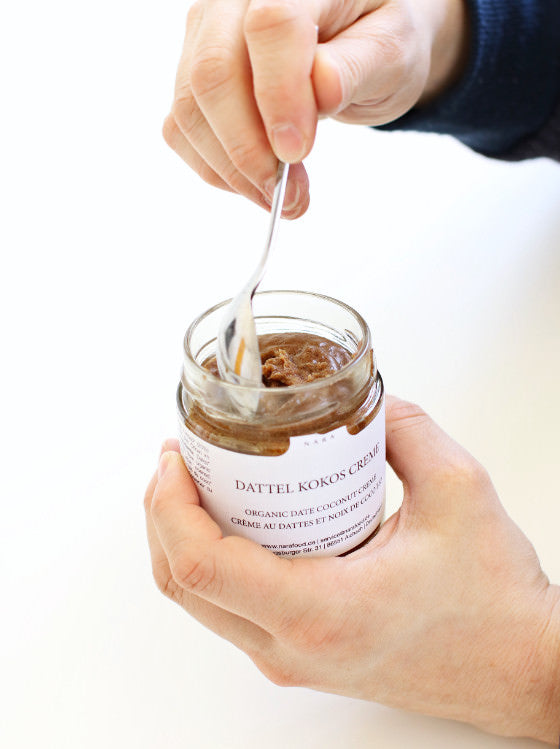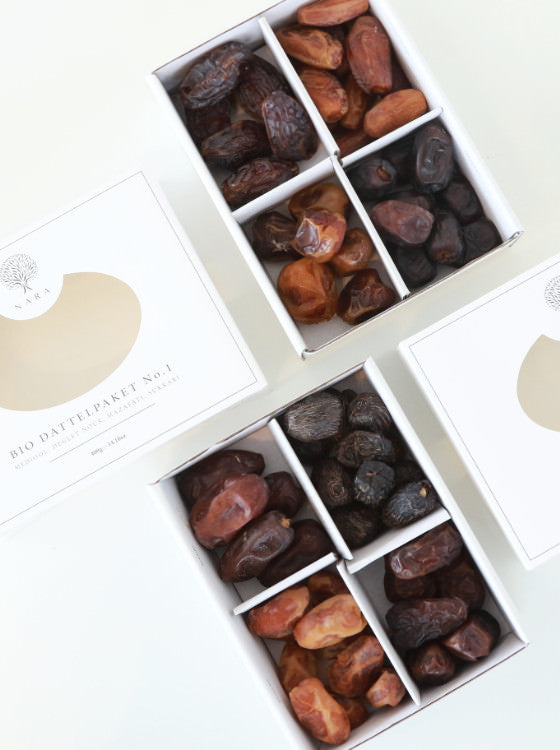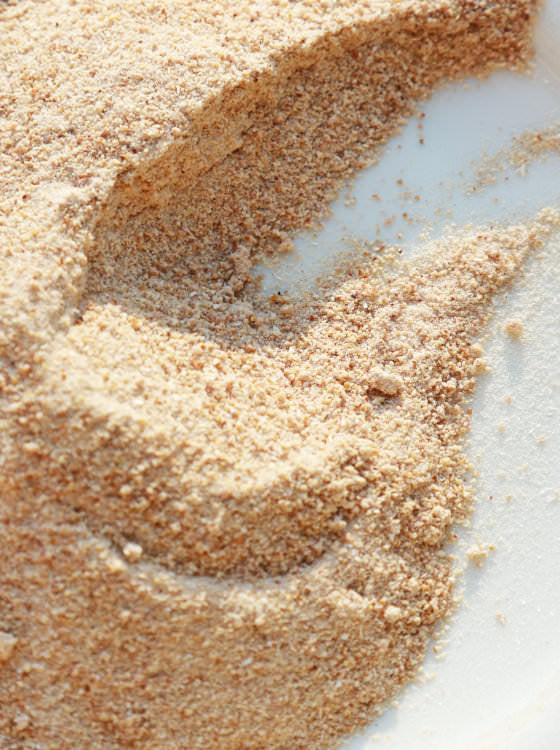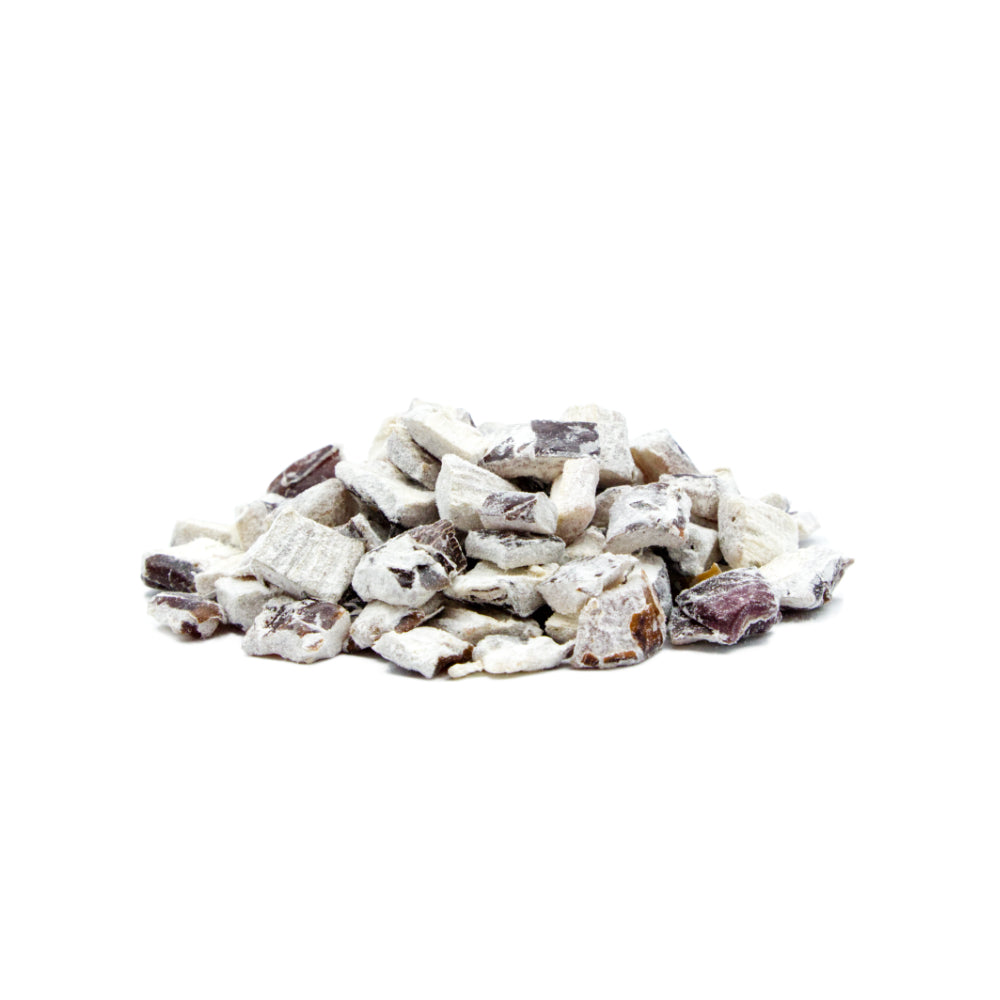
Date cubes organic
Organic date cubes: chopped dates for further processing.
For our date cubes, dates are pitted and then coarsely chopped - the pieces are between 1cm and 3cm in size. Date cubes are ideal for further processing, for example for baking fruity-sweet cakes, but also for cooking or for composing muesli mixtures. The date cubes are separated from each other with the help of organic rice flour so that they do not stick together.
Date cubes with separating agent rice flour
To prevent the date pieces from sticking together in a big lump, they are rolled in rice flour after chopping. Of course, the rice flour is also of organic quality. When filling the bags, additional rice flour is added. In the 1 kg bag are about 750 g date cubes and 250 g rice flour. The rice flour content of 25% is therefore quite high. In comparison: other manufacturers usually use between 3-5% rice flour as a separating agent. With our date cubes in rice flour, you should therefore sieve off the excess rice flour before use - this works wonderfully in a normal kitchen sieve. We have compiled some tips and ideas for further processing of rice flour below.
Date cubes from Khidri organic dates
Our date cubes are made from Khidri organic dates. The Khidri date has a relatively compact yet soft flesh. Thus, the date pieces retain their shape without becoming "mush" when chopped, but are still pleasantly soft.
Soaking before using as a cooking or baking ingredient is not absolutely necessary. You can use the date cubes (for example, in baking) without further ado as they are in the dough. However, depending on what you want to do with them, you can also soak the cubes. For a juicy fruit bread, for example, it is recommended to soak the date cubes in orange juice beforehand. In this way, they take on an additional refreshing, fruity-sour note due to the fruit acid in the orange juice.
What are the date cubes suitable for?
If you want to buy dates for further processing, we recommend our organic date cubes. The date pieces are particularly suitable as a baking ingredient, for cooking and for muesli mixtures. In baking, the date pieces can be used very versatile. They give doughs a fine, natural sweetness and also have a pleasant bite. We also like to use date pieces in cooking. In sauces, meat dishes and stews, the subtle, caramel sweetness of the date pieces is often a great (and often underestimated) component.
If you like to create your own muesli mixes in stock, you can definitely do something with our organic date cubes. The date pieces have a good size and do not need to be chopped further. So you save yourself a few steps. After sifting the excess rice flour from the date pieces, you can use the cubes immediately. The fine layer of rice flour that remains on the cubes ensures that they do not form lumps even in the muesli mixture. When mixed with (vegetable) milk or yogurt, the fine rice flour layer dissolves quickly and also leaves no unpleasant taste of its own.
How can rice flour be used?
Our 1 kg package of date cubes contains about 250 g of organic rice flour. It is worth sifting the rice flour and saving it for other uses.
Rice flour is a gluten-free alternative to wheat flour and is therefore particularly suitable for gluten-free baking projects. When baking for children, for example, rice flour is popular because it is generally better tolerated than wheat flour. In Asian cuisine, rice flour is one of the basic ingredients, similar to wheat flour in this country, and has many different uses.
Baking with rice flour: what do I have to bear in mind?
Since rice flour does not contain gluten, it lacks the "glue" that gives wheat flour doughs their stable elasticity. Doughs made with rice flour, therefore, do not hold together as well and do not rise in the oven. So airy, tall pastries or even breads cannot be made with rice flour alone. In such cases, it is recommended to mix the rice flour with other flours.
Since rice flour is relatively tasteless and contains a lot of starch, it can be used to thicken both sweet and savory sauces. It should be noted that rice flour hardly absorbs any water in cold liquids. The sauce is only thickened when heated. Homemade spreads or desserts can also be thickened with rice flour.
Average nutritional values per 100g
- Energy 1385m kj / 331 kcal
- Fat
- of which saturated fatty acids
- Carbohydrates
- of which sugar
- Protein
- Salt
Country of origin: verschiedene
Recipes with our dates

Orientalischer Reis mit Datteln, karamellisierten Zwiebeln, Rosinen und Pistazien
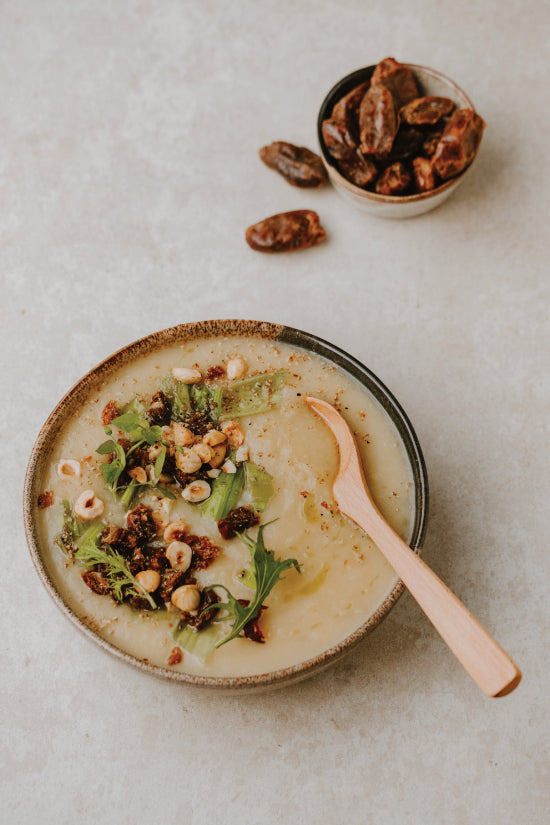
Kartoffel-Lauch Suppe: Rezept mit Dattel-Nuss-Topping
